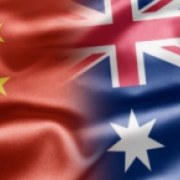Weighing up China's invested interests
Just before Christmas, as many of our corporate and political leaders were already heading off to the beach, Beijing quietly issued important new rules governing investment by mainland Chinese corporates in Australia.
Despite the mealy-mouthed title – “The Catalogue of Investment Projects Subject to Government Verifications” – these regulations are likely to have a significant impact on economic and political life in Australia in 2014 and beyond.
Under the previous legal regime (last updated in 2004), companies in China engaging in offshore investment required advance approval from the central authorities in Beijing for relatively small amounts. Typically, amounts less than $US10 million were the only ones given an automatic go-ahead.
This clearly did not restrict all overseas investment projects, and approvals for much higher amounts were ultimately forthcoming from Beijing. Nevertheless, the low financial thresholds requiring such central approval – combined with the number of agencies whose political buy-in was required – tended to be a real impediment to the deal-making ability of Chinese corporates abroad.
It would be overstating things to say that the process has now been completely streamlined. However, the new rule of thumb is that advance approval at the national level will now generally only be required where the investment to be made is greater than $US1 billion.
As a result, Chinese corporate management should now be able to react more quickly and be much more opportunistic about future offshore investment proposals in Australia and elsewhere in the world.
Any Chinese outbound investment in to Australia will, of course, still be subject to our own foreign investment regime, which provides its own delays and uncertainties. But new rules on China’s side should, in all likelihood, lead to wider participation in a range of deals in Australia by Chinese corporates.
The economic pressure for a new global wave of Chinese investment has long been building.
Despite the media hype, it is worth reiterating that there has been only a relatively small amount of foreign direct investment by China abroad.
Australia is the largest recipient of Chinese foreign direct investment to date, but we have still only witnessed a relatively modest amount. Best estimates (according to a report by KPMG / University of Sydney last year) put the figure at around $US50 billion, or less than 3 per cent of the total accumulated foreign investment this country.
By way of comparison, our traditional trading and investment partners such as Japan, the United Kingdom and the United States have much larger shares of foreign investment in Australia: 10 per cent, 14 per cent and 25 per cent respectively.
China is currently the world’s second largest economy. When exactly it will become the world’s largest economy depends on whom you believe: the OECD says 2016; Goldman Sachs, 2022; the World Bank, 2030.
It would nevertheless be a reasonable expectation that China will in time have a share of foreign investment in this country commensurate to the size of its economy.
What will it mean if China replaces the United States as the largest foreign investor in Australia? To what extent does the political character of the country matter? These are some of the questions that the new Abbott government will have to wrestle with.
Even while they gain increasing operational autonomy, Chinese corporate management (in both state-owned and notionally private companies) will still be very careful that their commercial activities remain consistent with the political goals of the leadership in Beijing.
When the Howard government left office, the amount of Chinese investment in Australia was negligible – less than 1 per cent. The global economic landscape has changed considerably since then. The current government has very few (if any) bonafide ‘China hands’ among its senior advisers that it can rely on for advice.
Huawei’s blocked investment in the NBN seems certain to be just the beginning of a much larger discussion about how the new commercial partnership between Australia and China should operate. Kevin Rudd may be gone, but China isn't going away any time soon.
Dan Ryan has spent more than 10 years in Greater China as a lawyer. He is the managing director of corporate advisory firm, Serica Services.













